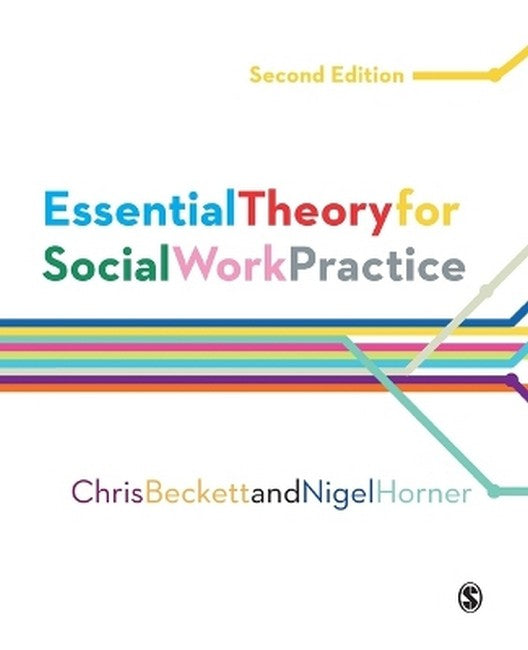Chris Beckett studied Psychology at Bristol University and qualified as a social worker at Bangor, North Wales, in 1980, going on to work for eighteen years as a social worker and social work manager, and then for fifteen years as a social work lecturer at Anglia Ruskin University and the University of East Anglia. He has had a parallel career for some time as a writer of fiction and is now a full-time writer. His novel, Dark Eden was the winner of the Arthur C. Clarke award for 2012. Nigel Horner is Head of the School of Health and Social Care at the University of Lincoln, where he teaches social work history, theory and methods, residential child care and ageing and older people. He began working in a London Borough Children's Home in 1972, before studying Sociology at Durham University. After a period as a Community Worker, he qualified in Social Work from Glasgow University in 1980, and thereafter worked in Mental Health, Child and Adolescent Mental Health Services, Fostering and Youth Offending settings. He is also a Senior Fellow in the Higher Education Academy.
Request Academic Copy
Please copy the ISBN for submitting review copy form
Description
What This Book is About Chapter 1: Introduction and Using This Book Chapter 2: What Do We Mean by Social Work Theory? Chapter 3: The Use and Abuse of Theory Social Work Roles Chapter 4: The Roles We Play Chapter 5: Relationship-Based Work Chapter 6: The Use of Authority and Power Chapter 7: Advocacy and Empowerment Chapter 8: Working with Others: Working in a Team Chapter 9: Environmental Intervention Past, Present and Future Chapter 10: Which Way to Look? Chapter 11: The Power of the Past Chapter 12: Searching the Present Chapter 13: Exploring the Future Chapter 14: The Importance of Language Chapter 15: Working with People towards becoming Unstuck The Wider Context Chapter 16: Systems and System Levels Chapter 17: Families as Systems Chapter 18: Groups and Communities Chapter 19: Political Perspectives It's All Very Well in Theory... Chapter 20: The Question of Evidence and the Problem of Uncertainty Chapter 21: Talk and Substance Chapter 22: The Limits of Theory Chapter 23: Current Contexts and Contemporary Models of Social Work Practice
This book has many strengths and is highly recommended for those interested in social work. Firstly, it is written in a fluent and straightforward manner, making it easy for readers to understand the essential elements of social work and the relationship between theory and practice. Secondly, the authors re-examine the multiple roles of social workers, especially their control agent roles, offering a new perspective on social work's function in advocacy and empowerment. Instead of solely performing the traditional role of caring, social work is urged to recognise its power and use it appropriately. The authors also establish theoretical connections among the past, the present and the future, inspiring readers to reflect on the development of social work in a global context. Lastly, the book includes various exercises and practice notes that are helpful for both social work teachers and students. It is an accessible resource for understanding social work and enhancing reflective and critical thinking. The book sheds light on the challenges of professional development faced by social work and reminds us of the importance of locating its identity in modern society amidst rapid changes in a vast policy agenda. -- Shanshan Hong * China Journal of Social Work *

